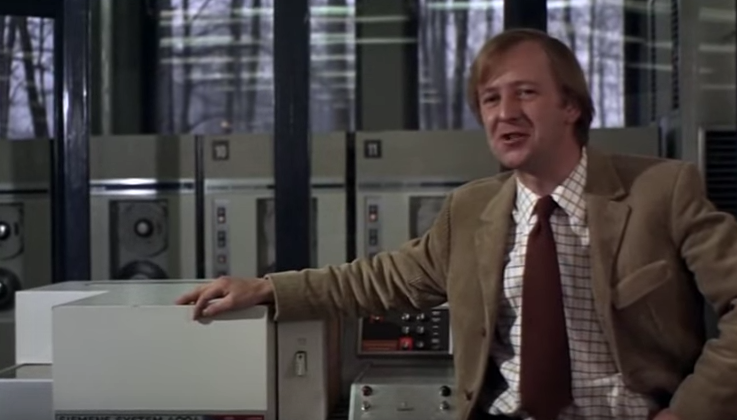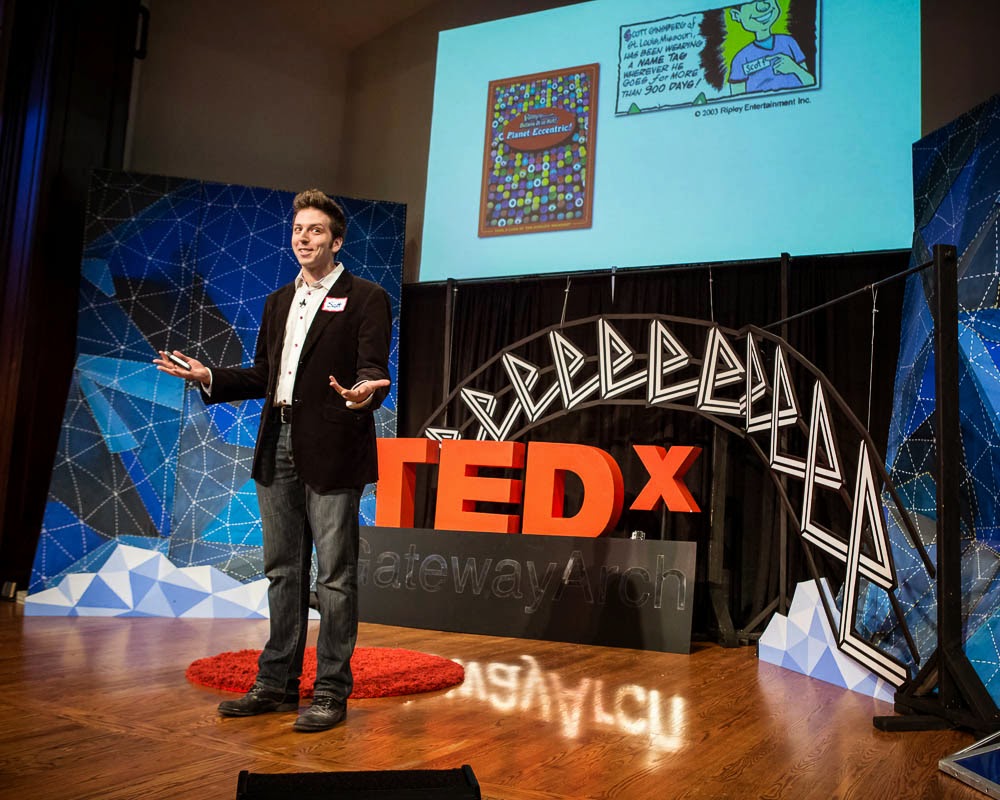

All creativity begins with the moment of conception.
That little piece of kindling that gets the fire going. That initial source of inspiration that takes on a life of its own. That single note from which the entire symphony grows. That single spark of life that signals an idea’s movement value, almost screaming to us, something wants to be built here.
Based on my books in The Prolific Series, I’m going to be deconstructing my favorite moments of conception from popular movies. Each post will contain a video clip from a different film, along with a series of lessons we can learn from the characters.
Today’s clip comes from the computer scene in Willy Wonka:
Ideas evaporate unless they are massaged
into reality. We can brainstorm ideas until we’re blue in the face. But
eventually, it comes time to stop creating and start judging. That’s what
separates the prolific innovator from the professional researcher. Their
ability to stop gathering data and think about what has been gathered. Their
capacity to shift neural gears in a hurry and click into a different zone at a
moment’s notice. Computers, unfortunately, cannot do this. They can’t tell you
where the next golden ticket can be found. Because what a computer does doesn’t
depend on how it’s built, but on the program fed into it. The good news,
however, is that human being can hone
this skill. It’s simply a matter of punctuation. Establishing a line of
demarcation. A microstructure that sets a boundary between gathering dating and
thinking about what’s been gathered. Recently I was writing my course
curriculum on being prolific. I reached the point where I had to transition
from conceptual, freestyle brainstorming to more technical, structured
outlining. And so, I used a centering sequence, which is a combination of deep
breathing and incantation. I recited specific language that supported my
intention to move in a certain direction, i.e., I am completely stopping, I
am ready to start judging. I’ve used this tool multiple time each day for
many years, and I find it’s a way of making a full body announcement that I’m
entering into a different relationship with my mind. The ritual creates the
necessary space to find the organizing principle of an idea, which moves the idea
from word to flesh, from concept to reality.
How do you transition from creating mode to judging mode?
You have ruined my sense of reality. I just finished reading a novel about a husband who
kidnaps his wife for ransom. In the final chapter, there’s a powerful passage,
in which the woman comes to terms with her new reality. “It’s a big blow,
finding out a person isn’t who you thought they were, that the world isn’t the
way you thought it was. You’re living your life under certain assumptions, and
then you find out they’re all wrong. You thought you were walking on firm
ground, but you’re really walking through a swamp of shit.” I know that moment.
It’s sad and jarring you feel betrayed and you start to think you don’t
understand the world anymore. I’m reminded of when I quit my first job. I spent
an hour writing an earnest, thoughtful letter of resignation to my bosses,
thanking them for believing in me, even requesting a face to face meeting so I
could share my appreciation in person. Pretty professional, don’t you think?
The bosses ignored me for two weeks. Literally, not a word. No acknowledgement.
No exit interview. Just silence. Unbelievable. It really bothered me. I felt
empty and invisible. Not because I was expecting balloons and cake, but a simple
goodbye would have been enough. Jesus. Grant me that much. The point is, life
is full of disappointment. As much as we’d like to remove the teeth from the
cruel bite of reality, we can’t pretend that the world is different than it is.
But that shouldn’t keep us from doing our best to make sense of it all. Because
odds are, in the end, the majority of the tally marks will be in the win
column. Are you shielding yourself from
the sharp edges of reality?
Deep in the
throes of delusion. Most artists and creators and inventors spend their days
alone in a room with nothing but their minds to rely on. In fact, most of them
will attest, you have to be a little
deluded to stay motivated. Because if you cannot delude yourself into thinking
your work is significant, you should probably find another career. And if you
don’t think what you’re creating is the greatest thing that ever was, if you
haven’t convinced yourself that your ideas are legitimately going to change
people’s lives forever, you’re finished. It’s grandiose, but it’s also part of
the job description. Nobody stands at foot of an unblazed trail without a few
mental abnormalities. A certain level of healthy narcissism and productive
arrogance are required to thrive. And so the question is, how do you know
when your inventory of deceptions is dangerously imprisoning your creative
potential, or when it’s actually buttressing your ideas for the better? Sadly,you don’t. Uncertainty is part and
parcel of the creative process. Every new idea is just another public bet with
your imagination. Consider history’s greatest innovators. Bell didn’t do market research before he invented the
telephone. Jobs didn’t hold focus groups before he changed the music industry
forever. Ford didn’t give his customers the faster horse that they asked for. And yet, each
of their creations changed everything. Because these innovators operated from received wisdom, not perceived expertise. They knew that nobody knows what nobody wants until
they actually see it. Proving, that all we can do as creators is trust our
instincts. We can have faith that with every new idea we have, with every new
project we execute, and with every new dimension we add to our being, our
powers of perspective and judgment and contextual understanding will deepen. And
we can hope that when our delusions take us too far, the people we love will
help bring us back to earth.How do you know when you’re being delusional, and when
everyone else is wrong and they just can’t see it yet?
LET ME ASK YA THIS…
What did you learn from this movie clip?
LET ME SUGGEST THIS…
For a copy of the list called, “11 Ways to Out Market the Competition,” send an email to me, and you win the list for free!
* * * *
Scott Ginsberg
That Guy with the Nametag
Author. Speaker. Strategist. Inventor. Filmmaker. Publisher. Songwriter.

Never the same speech twice. Customized for your audience. Impossible to walk away uninspired.
Now booking for 2016-2017.
Email to inquire about fees and availability. Watch clips of The Nametag Guy in action here!
